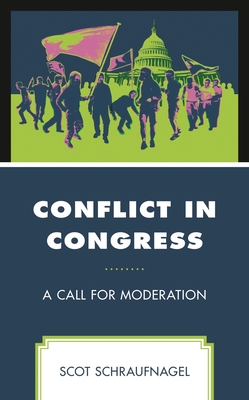Conflict in Congress: A Call for Moderation

Conflict in Congress: A Call for Moderation
The book introduces Legislative Conflict Theory. The theory suggests that conflict in legislatures is two-dimensional and that a moderate level of conflict will be most productive. The two types of conflict are policy differences and relational conflict. Using the US Congress as a testing ground, and novel indicators of both forms of conflict and legislative productivity, the book tests the theory various ways. The testing arrives at the conclusion that specific Congresses and historical eras, easily identified as more productive, experienced a median level of two-dimensional conflict. There are implications for effective legislative process in all political settings including democratically elected legislatures and 'rubber stamp' legislatures in authoritarian environments. In the end, the research makes the case for recruiting the right type of people to serve. However, the most effective legislators will be context dependent. In low conflict scenarios, rabble-rousers become the most effective legislators. When two-dimensional conflict is too high, the need is for disciplined-mannerly legislators committed to compromise.
PRP: 930.00 Lei
Acesta este Pretul Recomandat de Producator. Pretul de vanzare al produsului este afisat mai jos.
837.00Lei
837.00Lei
930.00 LeiLivrare in 2-4 saptamani
Descrierea produsului
The book introduces Legislative Conflict Theory. The theory suggests that conflict in legislatures is two-dimensional and that a moderate level of conflict will be most productive. The two types of conflict are policy differences and relational conflict. Using the US Congress as a testing ground, and novel indicators of both forms of conflict and legislative productivity, the book tests the theory various ways. The testing arrives at the conclusion that specific Congresses and historical eras, easily identified as more productive, experienced a median level of two-dimensional conflict. There are implications for effective legislative process in all political settings including democratically elected legislatures and 'rubber stamp' legislatures in authoritarian environments. In the end, the research makes the case for recruiting the right type of people to serve. However, the most effective legislators will be context dependent. In low conflict scenarios, rabble-rousers become the most effective legislators. When two-dimensional conflict is too high, the need is for disciplined-mannerly legislators committed to compromise.
Detaliile produsului











